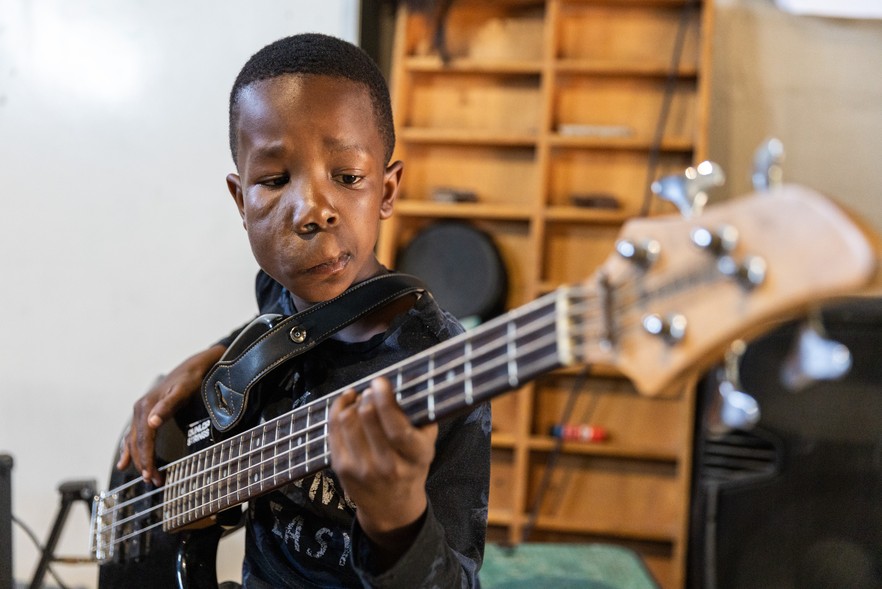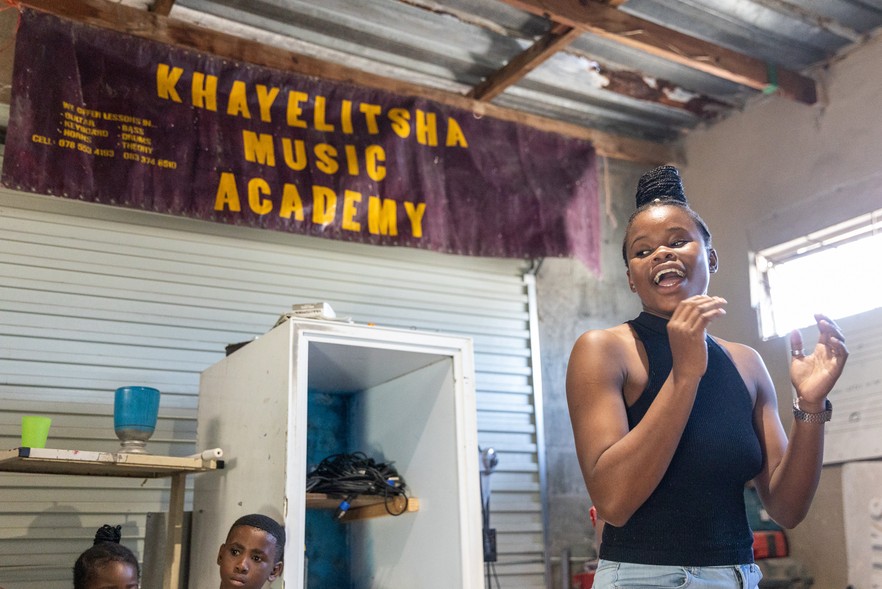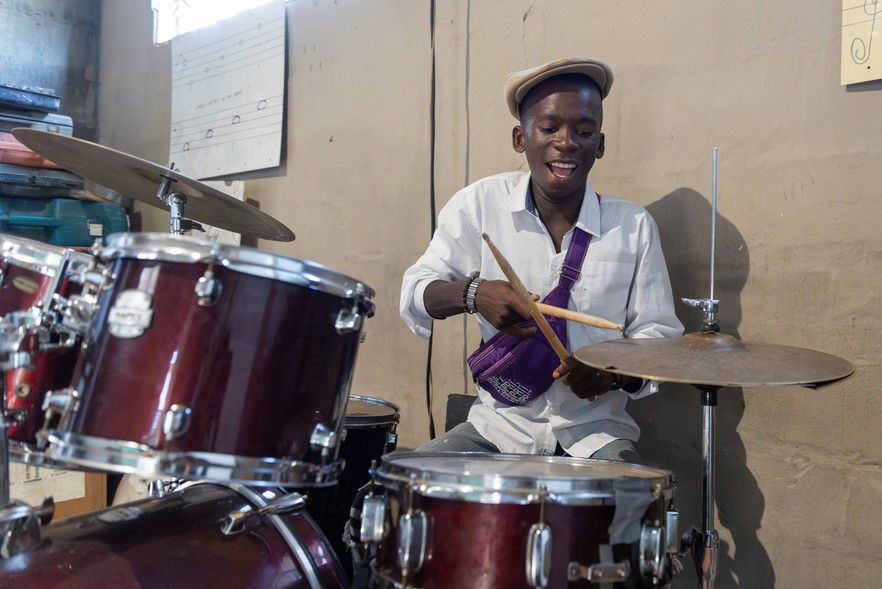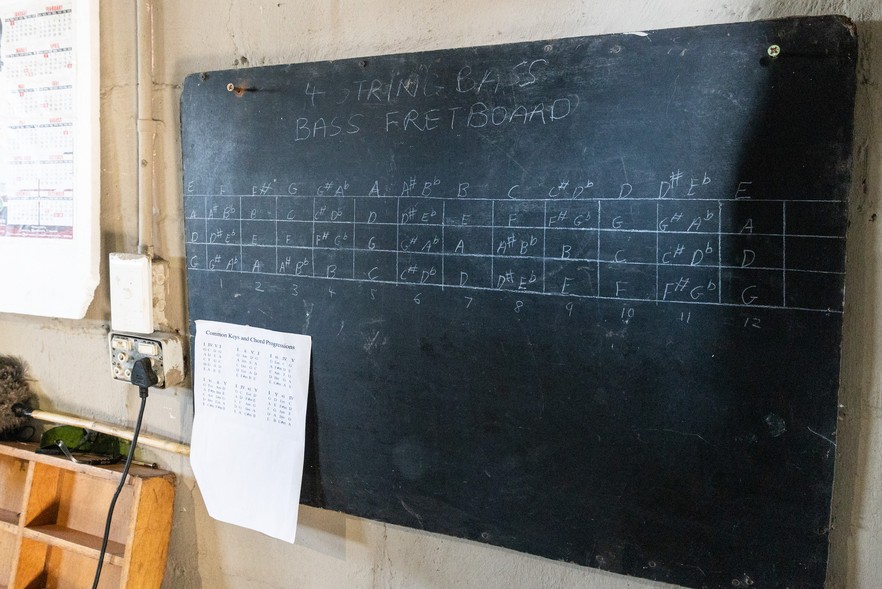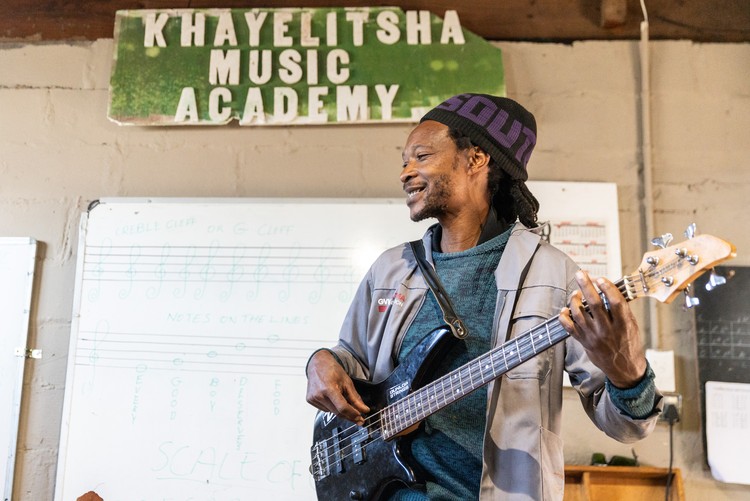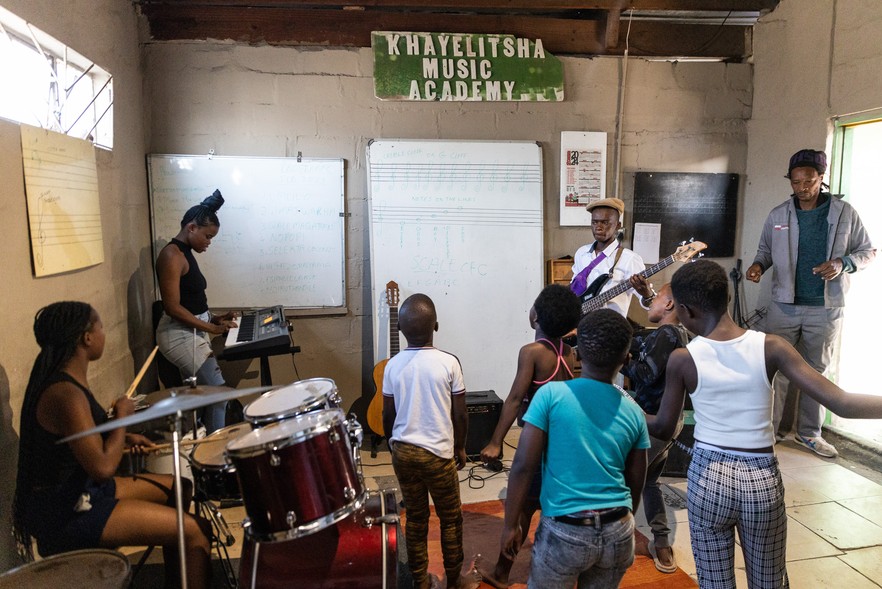Khayelitsha Music Academy hopes to change lives
Two township musicians have dedicated themselves to teaching children to play and read music
Likhona Ngomani practices bass guitar.
The Khayelitsha Music Academy started in 2006 in a shack near the beach, with just one student, receiving guitar lessons. Today the school has 19 students and teaches several instruments and music theory.
The school was founded by Khayelitsha musicians Ongx Mona and Wara Zintwana. They funded the academy and bought instruments with money from busking on trains.
The academy has moved from Monwabisi Park informal settlement to the garage of Zintwana’s cousin’s home in Khayelitsha.
Children at the academy practicing. Video: Ashraf Hendricks
Mona says that after high school he wanted to further his studies in music but couldn’t, as he had trouble reading sheet music. Music was not offered as a subject at his school and music schools cost money. The only way to get into music was through Gospel choirs.
He decided to open a music academy. Being able to read music makes students “employable all over the world”, he says.
Seventeen-year-old Hlumi Pasi has been at the academy for over eight years. She says that her favourite instrument is the piano as she finds it “easy”. Pasi also sings. She says that one day she wants to perform solo on stage. “It’s going to take me far,” she says.
The school is free and the teachers are volunteers. The classes, two hours long, run four times a week. Students are taught music theory, acoustic guitar, bass guitar, drums and keyboard. If there is money, the students are also offered food.
The 19 students are aged between five and 23.
Zintwana says that in Khayelitsha, children hang out on corners, where people are drinking and smoking, because of a lack of after-school activities. He wants to offer them a better option.
But the academy battles with a lack of funding and also with crime. In 2015, criminals broke into the garage and stole guitars and pedals for keyboards and drums. It’s also not safe for children to walk in the street with their instruments so it is hard for them to practise at home.
Liyabona Mraji says that drums are his favourite instrument. “The drums are the leaders of the song,” he says. “When there’s drums, there’s jam, there’s groove.”
Mona says that a few former students have managed to find work through the academy, sometimes playing music in churches. “We know the academy is something that can create job opportunities … but it needs strong financial muscle to support it.”
The academy isn’t getting financial support from the community, parents or government, he says. They have had some luck with donations from Yamaha, Doctors without Borders, the Violence Prevention through Urban Upgrading (VPUU) project and US donors in the past, but that has mostly dried up.
The classroom is set up in a garage. There are lessons and sheet music on the walls. There are also music theory books available to students.
With R20,000 a month, Mona says, the academy could pay the music teachers a stipend, cover transport costs for students and teachers, maintain the instruments and feed the children. “You can’t really be teaching them on an empty stomach”, says Mona.
The school also needs more instruments and ideally the pair would also like their own vehicle and a piece of land for a permanent site. Travelling with instruments to shows and events is expensive. “It can be dangerous travelling with instruments in public transport,” says Zintwana. “We need transportation.”
The school was founded by Ongx Mona and Wandile Zintwana (pictured). Together they are part of the band ‘Warongx’.
Twenty-two-year-old Liyabona Mraji is one of the senior students. He has been with the academy for over 12 years. “When I’m here all of my problems just fly away”, he says. “There is peace with music.”
Projects like these bring stability and progress to the community, says Mona. “We want the academy to be a thing that changes people’s lives.”
Support independent journalism
Donate using Payfast

Don't miss out on the latest news
We respect your privacy, and promise we won't spam you.
Next: Can South Africa afford a Basic Income Grant? Or can we afford not to?
Previous: Solar lights mean shack dwellers can walk to the toilet at night
© 2024 GroundUp. This article is licensed under a Creative Commons Attribution-NoDerivatives 4.0 International License.
You may republish this article, so long as you credit the authors and GroundUp, and do not change the text. Please include a link back to the original article.
We put an invisible pixel in the article so that we can count traffic to republishers. All analytics tools are solely on our servers. We do not give our logs to any third party. Logs are deleted after two weeks. We do not use any IP address identifying information except to count regional traffic. We are solely interested in counting hits, not tracking users. If you republish, please do not delete the invisible pixel.

